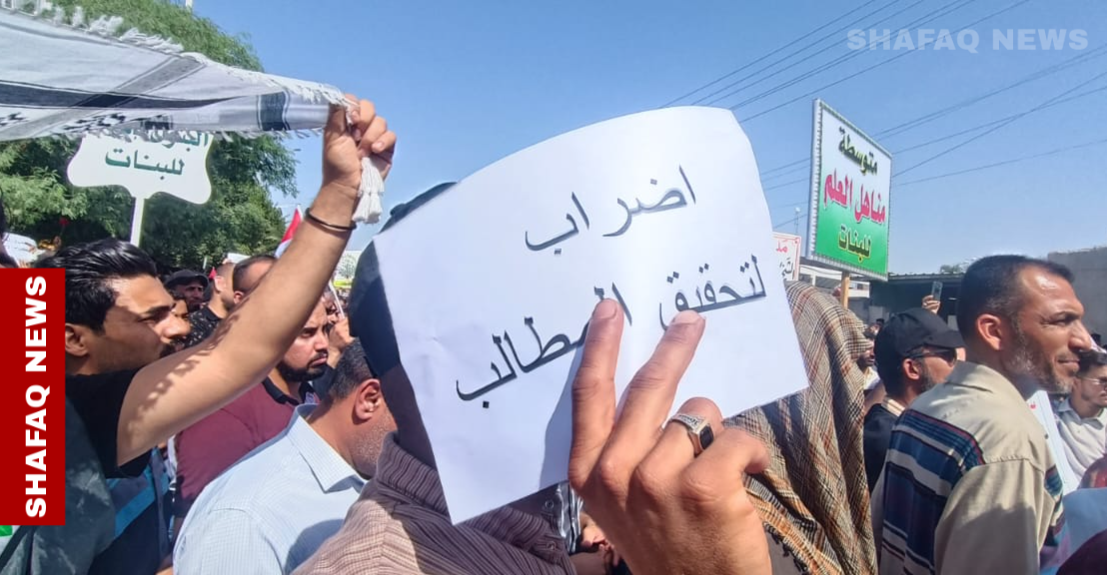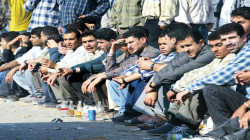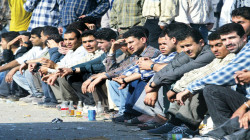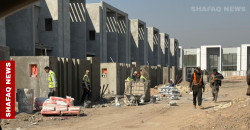Waiting for work: Iraq’s youthquake that never hit

Shafaq News
At 26, Maryam from Babil province holds a degree in administration and economics, yet her path to stable employment has been fraught with obstacles. After graduation, she was eager to start her career but quickly confronted the harsh reality of stalled public sector recruitment. As the Iraqi government hiring slowed to a crawl, competition for stable jobs grew fiercer.
Determined not to be sidelined, Maryam shifted her focus to the private sector. She honed new skills to increase her competitiveness and ultimately secured a position. Yet even in the private sector, challenges persisted—intense competition, job insecurity, and unstable wages shaped her daily experience.
Maryam’s story reflects the struggles faced by thousands of young graduates across Iraq. She urges the government to collaborate with the private sector in launching comprehensive training programs, promoting entrepreneurship, and bolstering small and medium-sized enterprises (SMEs).
For her, these steps are vital not only for economic recovery but also for restoring hope and dignity among Iraq’s youth. “Many of us are willing to work hard—we just need someone to invest in our potential,” she reflected to Shafaq News. “We don’t want to wait years for a job that may never come.”
Idle Majority
Iraq’s population is overwhelmingly young, over 61% are under the age of 30, totaling nearly 28.7 million people in a country of 47 million. This demographic should serve as a tremendous advantage, yet it has become a pressing concern.
In 2024, the International Labour Organization reported rates to exceed 36%, which is more than triple the national adult unemployment rate. Among young women, unemployment soars past 65%. A 2023 World Bank study further revealed that nearly 28% of university graduates under 30 remain unemployed, highlighting a severe mismatch between academic qualifications and market needs.
“We’ve entered a period where youth energy is overflowing, but the market is too weak to channel it,” economist Ali Al-Darraji told Shafaq News.
Each year, approximately 700,000 young Iraqis enter the workforce. However, the state, historically the largest employer, can no longer absorb new graduates at scale. The public sector is saturated, while the private sector remains underdeveloped and unable to create sufficient job opportunities.
Cracks in the Core
Economist Safwan Qusai underscored the urgent need to refocus national efforts on human development, emphasizing that vocational and technical training, rather than solely academic degrees, offer the most effective pathway to bridge the skills gap and prepare youth for a globalized economy. “We must invest in specialized tracks that reflect where global demand is headed—not just where tradition tells us to go,” Qusai urged in an interview with our agency.
With around 15 million Iraqis of working age, Qusai stressed the importance of developing specialized certificates for high-demand skills. “Shifting from theoretical knowledge to applied skills will lower labor costs, boost productivity, and expand employment across sustainable development sectors,” he noted.
Currently, Iraq’s private sector contributes only 37% to GDP, compared to over 60% in neighboring Jordan. Less than 18% of young Iraqis hold formal jobs in the private sector, while many remain underemployed or trapped in the informal economy. This structural weakness limits job creation, especially in impoverished provinces.
The expert also highlighted the Central Bank’s 4-trillion-dinar initiative (approximately $3.1 billion) as a crucial instrument for Small and Medium Enterprise (SME) growth. To date, over 2.1 trillion dinars (around $1.6 billion) have been allocated to nearly 10,000 small businesses, many youth-led or based in high-unemployment areas.
Riyada Initiative
In response to these challenges, Prime Minister Mohammed Shia Al-Sudani launched the “Riyada” (Entrepreneurship) initiative in March 2023 to nurture innovation and self-reliance among Iraq’s youth.
Currently, over 828 training halls operate nationwide, supported by more than 1,000 certified trainers who equip aspiring entrepreneurs with essential skills. The program also facilitates access to financing through local banks, providing capital to transform ideas into viable businesses.
Hussein Falamarz, the program’s Executive Director and Adviser to the Prime Minister, described the initiative’s five-step framework: online registration, in-person training, project feasibility assessment, digital loan applications, and a 10-year follow-up process.
“What distinguishes Riyada is its long-term vision—we’re not handing out jobs, we’re helping youth build livelihoods,” Falamarz explained to Shafaq News, adding, “We are creating an ecosystem where young Iraqis can build their future without waiting for a government job.”
He also noted that many of the program’s beneficiaries, once excluded from the economy, are now contributing through their own ventures, stressing that plans are underway to expand “Riyada” to the Kurdistan Region so that thousands more youth can benefit.
Invest in the Youth
Economic researcher Ahmed Abdul-Rahbeh viewed Iraq’s youthful population not as a burden but as a strategic asset capable of propelling long-term development—if properly harnessed.
Speaking with our agency, he further advocated revitalizing Iraq’s role as the “breadbasket of the Middle East” by expanding agriculture through modern irrigation, solar-powered greenhouses, and youth-focused financing. However, despite the fertile lands between the Tigris and Euphrates, these resources remain underutilized.
Abdul-Rahbeh also called for public-private investments to revive foundational industries like cement, chemicals, and textiles, which could generate widespread employment across urban and rural areas. He proposed establishing a national “Industry Support Day” to rally focus and resources around industrial revitalization.
“Youth don’t want charity—they want a fair system where effort and innovation are rewarded,” he emphasized.
Additionally, he highlighted the potential of emerging sectors such as medical technology, digital services, and agritech. While the private sector currently employs nearly 80% of Iraq’s labor force, most jobs are informal, low-wage, and lack benefits. Only 7% of private sector workers receive pensions or healthcare coverage.
To transform the labor market, Abdul-Rahbeh recommended aligning education with market needs, expanding vocational training, and offering five-year tax exemptions for youth-led projects in underserved provinces.
He concluded that Iraq’s demographic dividend can drive national development only through coordinated efforts among the government, private sector, and civil society, underpinned by flexible policies and continuous monitoring.
Written and edited by Shafaq News staff.





